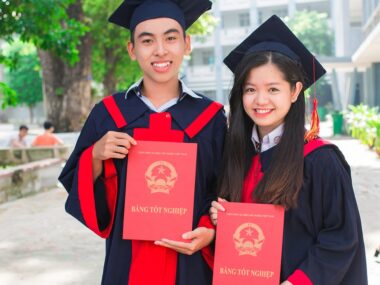Special needs education refers to a customized form of education that caters to students with physical, emotional, mental, and developmental disabilities. This type of education is designed to meet the unique learning needs of these individuals because they require additional support to help them achieve their academic and personal goals. Scholarship opportunities are usually available for students with special needs with the aim of encouraging their education which is typically more expensive than regular education.
Special needs education recognizes that students with disabilities have different needs and require personalized attention to achieve their goals. This type of education can range from inclusive classrooms, where students with disabilities are taught alongside their peers without disabilities, to separate classrooms and schools designed specifically for students with disabilities.
The Individuals with Disabilities Education Act (IDEA) is a federal law in the United States that mandates special education services for children with disabilities. The law ensures that students with disabilities have access to a free appropriate public education (FAPE) that is tailored to their unique needs. IDEA requires schools to provide Individualized Education Programs (IEPs) for students with disabilities. IEPs are tailored plans that outline a student’s learning goals, accommodations, and any additional services they may require.
The Importance of Special Needs Education
- It provides children with disabilities or learning difficulties the opportunity to learn and develop in a safe and supportive environment. Special needs education is designed to meet the unique needs of each child, providing individualized instruction, support, and resources that can help them succeed in school and in life.
- Special needs education promotes inclusivity and diversity in the society. By providing children with disabilities or learning difficulties with the education and support they need, we are creating a more inclusive and welcoming environment for everyone.
- Special needs education helps to break down barriers and promote understanding, acceptance, and respect for all individuals, regardless of their abilities or disabilities.
- Social and emotional development – Special needs education promotes social and emotional development, allowing students with disabilities to develop the skills necessary to build positive relationships and lead fulfilling lives.
Types of Special Needs Education
There are various types of special needs education that cater to different disabilities, including:
- Autism Spectrum Disorder (ASD) Education – this type of education focuses on providing support for students with autism. It involves using specialized teaching techniques, such as visual aids, social skills training, and sensory integration therapy.
- Learning Disabilities Education – this type of education focuses on providing support for students with learning disabilities. It involves using teaching methods that are tailored to the student’s unique needs, such as using visual aids, hands-on activities, and breaking down complex concepts into smaller, more manageable parts.
- Intellectual Disability Education – this type of education focuses on providing support for students with intellectual disabilities. It involves using teaching techniques that are tailored to the student’s cognitive abilities, such as breaking down complex concepts into simpler ideas and using concrete examples.
- Emotional and Behavioral Disorders Education – this type of education focuses on providing support for students with emotional and behavioral disorders. It involves using teaching methods that are tailored to the student’s unique needs, such as providing a safe and supportive learning environment, teaching coping skills, and using positive reinforcement techniques.
- Individualized Education Plans (IEPs) – IEPs are written plans that outline the individualized educational goals and needs of a student with a disability. They are developed by a team of educators, parents, and other professionals and are reviewed regularly to ensure that the student is making progress toward their goals.
- Assistive Technology – Assistive technology includes devices, software, or equipment that can help students with disabilities to participate in the classroom and complete tasks more independently. Examples of assistive technology include speech-to-text software, Braille readers, and wheelchair-accessible desks.
Challenges of Special Needs Education
Despite the many benefits of special needs education, there are still several challenges that need to be addressed. They include:
- Funding – Special needs education requires additional funding and resources to provide the necessary accommodations and support for students with disabilities. However, funding for special education programs is often limited, leading to inadequate support for students with disabilities.
- Lack of Coordination and Communication – Special needs education requires close coordination and communication between teachers, parents, and other professionals. However, many schools and districts struggle to facilitate this communication, leading to a lack of consistency and continuity in the education and support provided to students with disabilities.
- Teacher Training – Teachers who work with students with disabilities require specialized training and expertise. Unfortunately, many teachers do not receive adequate training in this area, leading to a lack of understanding and empathy for the unique needs of these students.
- Stigma and stereotyping – There is still a stigma attached to disabilities, and students with disabilities may face discrimination and exclusion from their peers, teachers, and the broader community. This can lead to feelings of isolation, low self-esteem, and reduced opportunities for learning and development.
Scholarships available for special needs education
There are a number of scholarships available for students pursuing special needs education. They include but are not limited to the following:
- The Anne Ford and Allegra Ford Thomas Scholarships: This scholarship is also offered by the National Center for Learning Disabilities and provides financial assistance to graduating high school seniors with ADHD who are pursuing post-secondary education.
- The Ability Center Scholarship Program: This program provides financial assistance to students with disabilities who are pursuing higher education.
- The Google Lime Scholarship Program: This program is offered by Google and Lime, and provides financial support to students with disabilities who are pursuing degrees in computer science, engineering, or a related field.
- The Autism Society of America Scholarships: The Autism Society of America offers several scholarships for students with autism who are pursuing higher education.
- The Foundation for Science and Disability Scholarship: This scholarship is available to undergraduate and graduate students with disabilities who are pursuing degrees in science, technology, engineering, or mathematics (STEM) fields.
- The National Federation of the Blind Scholarship Program: This program offers a variety of scholarships to blind students who are pursuing higher education.
- The Lighthouse Guild Scholarships: These scholarships are offered by the Lighthouse Guild and provide financial assistance to students who are legally blind or visually impaired and are pursuing post-secondary education.
- The Ruderman Foundation Scholarship: This scholarship is offered by the Ruderman Family Foundation and provides financial assistance to students with disabilities who are pursuing post-secondary education.
- com Scholarship: This scholarship is awarded to nursing students with disabilities who demonstrate academic excellence and a commitment to the nursing profession.
- AAHD Frederick J. Krause Scholarship on Health and Disability: This scholarship is awarded to students with disabilities who are pursuing undergraduate or graduate studies related to disability and health.
- The Microsoft Disability Scholarship: This scholarship is awarded to students with disabilities who are pursuing undergraduate studies in computer science, engineering, or a related field.
- The Kelly Law Team Autism Scholarship: This scholarship is awarded to students diagnosed with autism who are pursuing undergraduate or graduate studies.
- The Novak Education Scholarship: This scholarship is awarded to students with physical disabilities who are pursuing a degree in special education.





